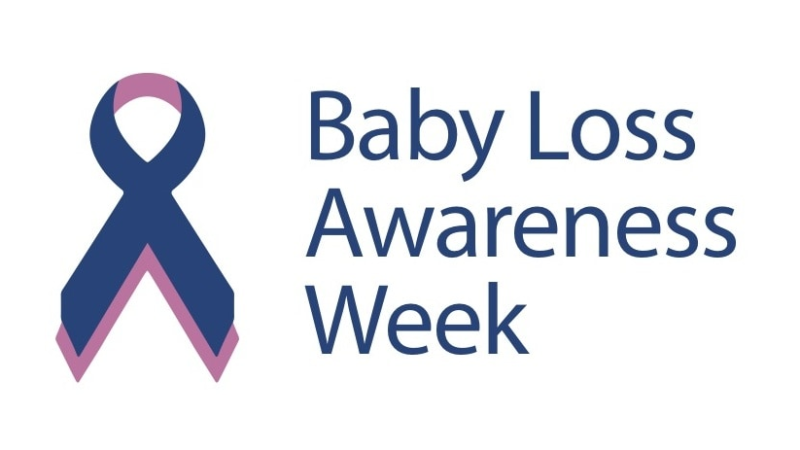
Researching Education – A Q&A with Dr Tara Jones
The Dumfries and Galloway Parenting Science Gang had a wonderfully in-depth discussion with Dr Tara Jones of the University of the West of Scotland about research methods in education. We learnt a lot and got some great ideas about how we could do our research in flexischooling in Scotland.
Photo by Green Chameleon on Unsplash
Hello and welcome everyone! I’m very pleased that Tara has joined us. Tara, can you tell us about your research, and what you found out?
Tara: Hi everyone. I’ve carried out two pieces of research around home education. The first explored home educated children’s experiences and perceptions of home education. The second explored the reasons why parents in England withdrew their children for home education and their children’s experiences and perceptions of school.
PSG: Ooooooh. And why did they withdraw?
Tara: It depended on the child. I carried out 5 case studies, and in general it was because parents felt their children were not receiving a suitable education, bullying issues were not being addressed sufficiently by school or that teachers/schools did not take sufficient account of additional support needs.
I’m interested that there are families who flexi-school. It is quite difficult here in England. I did try it briefly but there are no schools locally who will do it here – especially secondary schools
PSG: What kind of research did you do with the kids?
Tara: In the research exploring children’s experiences and perceptions of home education I used a method called photovoice. However, rather than analysing children’s photos I used the photos as a vehicle for children to develop their narratives about home education.
PSG: Practically speaking, how did you go about researching children’s perspectives? How did you avoid getting parents views via their children? How old were the children?
Tara: Ages 7 – 15. Not sure if I did avoid getting parents views with regard to their influence on their children and this is something I considered in my later research with families. In this research I used parent’s narratives to develop a meta-theory through which to analyse their children’s narratives and then provide some critical commentary.
PSG: How exactly did you explore their experiences?
Tara: I asked children to take photos of what they considered home education to be about and their feelings about it. Then I asked them to choose the 5 most important photos and talk about them.
PSG: What made you choose that method? Was it to do with what you wanted to find out, or just the research method you felt most comfortable with?
Tara: I had spoken with an Ed Psych a few months earlier and she had talked about the photovoice method with regard to children’s spaces in school and had given me a paper about this. I was aware that children might find it difficult to talk ‘cold’ but also I felt it would empower them in the research process – they set the agenda for the conversations in terms of what they chose to photograph and subsequently talk about.
PSG: That sounds great! What kind if things did they photograph? And what did they say about them? Did you then analyse those conversations and draw themes from them, and draw conclusions?
Tara: Not all children chose to talk with me. Two chose to do something slightly different. One sent me a PowerPoint presentation which she annotated. Another child with autism captioned his photos and sent these as a word document
They took pictures of the places where they learned, things they liked to do and objects. Interestingly, one child included a picture of herself which someone else had taken of her – she had lost her photos so picked some of her existing ones. This was something I hadn’t considered and lead me to consider how identity is linked to learning experiences and perceptions of those experiences.
PSG: I love this idea of photovoice. Could you send us a link to some more info about it? And what did the kids use to take pictures?
Tara: If you Google photovoice you should find quite a bit on it. UNICEF have also used this method.
PSG: I’d be really interested to read that. With some children, it can be a real struggle to get their opinions.
Tara: This is why I looked at more creative methods of exploring child voice.
There is some great research called ‘The School I’d Like’ which explores children’s experiences and perceptions of school by asking them about their ideal school. Children drew pictures, wrote stories, produced objects and used a range of tools to present the school they would like.
Photos are great. I remember when my son was young we went on a walk and one of the parents had brought disposable cameras for the children to take pictures. The children all loved it and some were as young as 3 – it gave them a sense of ownership and empowerment and I didn’t forget that.
PSG: I love the sound of these more creative methods. But I’m wondering how long it takes to then analyse? I mean, I guess you spent 3 or 4 years doing your PhD research. We don’t have as long as that!
Tara: Yes I did but the analysis didn’t take that long. Much of that time was spent thinking about the research questions, extensive reading of the literature, including developing a theoretical standpoint, and writing up of 80000 words which took about a year in itself. I still have much data that I haven’t used. I think it depends on what you want to analyse. I subjected my data to more than one type of analysis but you wouldn’t have to do that.
PSG: That might be an interesting concept for us to look at, because we are a group. So could we collect something and then different people or small groups could put it through different processes! Or look at different aspects?
Tara: That sounds like an interesting idea. I recently did some analysis on another project and subjected the data to different types of analysis with a view to looking at similarities across analysis in an attempt to develop robust themes. But, you could also look at where the different types of analysis converge. Another interesting approach would be for different people to carry out the same type of analysis and see how the themes may be similar and different – you might find the results quite surprising – demonstrating how analysis is influenced by one’s worldview or paradigm and how this affects the findings.
PSG: It would certainly be a valuable learning experience for us, irrespective of whether it feels like we add value to the outcomes of the project
Tara: It would be a really interesting research paper too – demonstrating how difficult it is to be objective in qualitative research. Although, I think the same about quantitative research too but for different reasons.
PSG: So, I guess this is a very qualitative kind of research. You’re trying to find something out about HOW the kids think, or whatever. You aren’t trying to measure things, to say, ‘Doing X was associated with a 2 point increase in wellbeing.’ Or whatever.
(Forgive my layperson’s understanding of the difference between qualitative and quantitative research in social science!)
In your opinion, what kinds of things is this kind of method best for finding out? Are there things that a quantitative approach would be better for?
Tara: Quantitative is usually about numbers and qualitative is usually about the detail. However, some qualitative data can be quantified such as content analysis for instance. The big issue is the way in which one interprets the data.
So, for instance, one could determine a set of themes and things to look for prior to the analysis and this is a deductive approach. Alternatively, one could wait for the data and ‘let it speak for itself, noticing themes as they arise – this is inductive.
However, we all come to research with biases and ways of interpreting the world from the outset so a 100% inductive approach is not necessarily possible, there will always be an element of cognitive bias.
Qualitative research methods attempt to go for detail and depth over breadth generally, but again not always. Some approaches to grounded theory, for example, are concerned with breadth and looking for generalisable patterns in the data.
I think the problem with quantitative approaches is that they are deductive and determine the parameters from the outset. Patterns are only patterns in relation to the boundaries of the data.
PSG: One of the things we want to find out is, whether flexischooling has benefits for the child. We’ve thought about things like ‘Does it increase their sense of self-efficacy/interest in learning/engagement with their own learning?’
We’d started off thinking about doing a survey, but we are open to other possibilities. But I guess it feels (possibly naively) that a survey, with a recognised scale or instrument to assess something, makes it easier to say, ‘this is the effect of flexischooling, because this is how the scores differ for non-flexischooled children’. Would you agree with that or not?
Tara: I think so. It would depend on how many children you could compare. Also, you would need to consider confounding variables such as IQ, family background, personality etc.
Also, are you thinking of immediate benefits or long-term benefits? The problem with something like this is that it will be very difficult to isolate your variables.
PSG: I worry that we will fall into the sort of pitfall that breastfeeding research always gets hammered with – that they are effectively measuring middle-class-ness rather than breastfeeding! Now they have enough data statistically to get through the variables argument, whereas we are unlikely to.
PSG: What we need are loads of families where one child is schooled full time and the other/others aren’t!
Tara: That’s interesting about the breastfeeding research. I guess it depends on where the data comes from. At the end of the day there will always be someone who points out a confounding variable that you hadn’t thought of
PSG: It would be amazing to do a longitudinal study, but we’ve only got three months! So it will have to be immediate benefits really. Although I know someone whose son flexischooled all through primary, and is now in full-time secondary…
Tara: A reflective study of children who have been flexischooled and the perceived benefits. You could compare this with reflective data from home educated only and schooled only children.
This is the issue with education though isn’t it – are the benefits always immediate?
PSG: When you say a reflective study, does that mean things like photovoice?
Tara: I mean asking people to reflect on their education (it probably wasn’t the correct term) and talk about their past experiences from their current vantage point.
Tara: You could do that with a questionnaire, an interview, a blog.
PSG: Good point, of course the outcomes we hope for from education are long term ones, but we mainly only have short term measures. And that’s one reason why politicians are always messing with education!
PSG: It would be interesting to see if something like a standard scoring tool correlated with the information from the photovoice! I’d be very interested to compare the reflections of the parent and the child!!
PSG: Mixed methods!
Tara: One method I did consider was a reflective diary / journal approach. However, it’s a lot of work for the participant. Video diaries could be used or even written diaries and participants could journal their reflections over a period of a month or so. It would be a bit tight though.
Who are you wanting to talk to? Which perspective do you want?
PSG: Ha well the broad aims of the project are to capture children, Parents and teachers. Which is obviously probably prohibitively massive.
Tara: Not necessarily if you did a case study
PSG: Yeah I’m perhaps leaning towards recruiting a smaller number of “teams” rather than recruiting hundreds for survey!
PSG: I work in Additional Support for Learning (ASL). And we are very concerned that it’s becoming the norm here to withdraw kids simply because there is insufficient provision for those children in mainstream systems.
Tara: When you say insufficient provision what do you mean?
PSG: Hmmm. Well, locally, close to zero provision for ASL needs in some areas. We live in an area where ASL is not well provided for at all unfortunately.
The Scottish policy of “presumption of mainstreaming” is a thorn in the side of education for ASL kids here!
Although maybe best not to get me started or I’ll side-track everyone ?
Tara: OK. Perhaps that’s another (but linked) conversation.
PSG: Yes – I love a good rant about ASL issues…….
A good number of the flexi schooling families I know are families with children with ASL and it’s the only way to meet their need, so schools are usually more than happy to let it go forward.
I do know some mainstream flexi families though, often ones who have a special interest such as music or performing arts etc
Tara: How do parents feel about this? What is your view then about the suitability of school education and, in particular, whether one size fits all?
PSG: ASL Education here is a massive issue. There are various reviews going on at government level (which are appallingly carried out in my opinion).
There is a big difference between policy and provision.
So if you subscribed to a mainstreaming ethos, you need a huge amount of resource to deliver that safely and effectively across the country. Which they don’t have.
Mainstreaming is a cost cutting exercise. They closed specialist facilities. Got rid of all the specialist staff. Stopped offering vital components of education that would be standard in England etc. Anyone who thinks it’s well intentioned is somewhat deluded.
The outcomes for most kids are rotten. Children from here with complex needs are attending schools in Aberdeen – an 8 hour round trip!!!
Tara: That doesn’t sound good. I guess policy and practice don’t always meet
PSG: No, not in Scotland they don’t ? I think you might just have summed up our entire governance system in one sentence!
Tara: I think it’s the same here in England. The idea of inclusion is great but the way in which it is interpreted, understood and implemented can vary greatly. Inclusion means many things to many people
PSG: At least you still have special schools though! And Education, Health and Care Plans (EHCPs).
Tara: There are special schools in Scotland too, aren’t there? I worked in one in Dumfries last year
PSG: One in Dumfries and Galloway at secondary level.
PSG: As a general rule they are “phasing out” specialist facilities in most LAs. Sometimes the parents win though and they don’t succeed in closing them. They are shrinking though, so when ours moves next year it has fewer spaces (despite demand for places going up). All bases in Dumfries town at primary level are either full or over capacity.
Tara: Hmm – I guess the problem is quite complex. For some children specialist education is necessary but also being part of the community is too. I currently work with a gentleman who has multiple additional needs but actually loves to just be part of the community. It struck me that he spoke of watching the world from his window and in this respect felt that he wasn’t part of it. This is some of the issues with the concept of ‘inclusion’. It means different things for different people.
PSG: Unfortunately there are too many young people coming out now with no education because they’ve tried to educate them with mainstream approaches and failed to understand or accommodate their needs.
Tara: I can completely empathise with this. I believe, however, that the problem is not necessarily one of inclusion but of the suitability of the education provision and this ideology of everyone having to have exactly the same education and reach the same targets and goals. I think we have lost sight of the person in this and the purpose of education. Inclusion would work much better if children could be who they are and be empowered through their strengths and not all have to achieve the same things.
PSG: Yes exactly! For some children learning to read using phonics simply doesn’t make sense.
Tara: There is some research somewhere which is quite old now and I can’t remember who did it but it looked at boys and girls and the different preferences for reading. Boys were much more likely to learn through sight recognition than girls. There are, of course, several different approaches to phonics. Context is also very important too. And, if a child finds sound discrimination difficult anyway then phonics is going to be very difficult for them.
This is the problem with a one size fits all. We forget the individual child and what works for them.
My findings about children’s perceptions of home education was that motivation was important and that being involved in and having a say in their education was a motivating factor. Also, that when children were motivated they learned better.
PSG: Back to schools for a minute. Similar question to before really (I’m all about the method at this point! ?). How did you go about finding out children’s perspectives of school?
Tara: My findings in the PhD looked at children’s positioning in the school context as I was particularly interested in children’s voice and how their experience of voice influenced their experiences and perceptions of school
I had tried photovoice in school with school children and found that it didn’t work. This was mainly due to the power relations in school and what children were allowed access to. Also talking with children in school was not as comfortable for children as talking with them in their homes. I wanted to find a method that empowered children so initially I decided that I would leave the way in which children communicated with me open. It just happened that the children in this research chose to meet face to face and talk to me with their parents around if they wished. I used a semi-structured approach with a single opening question and children and parents had an opportunity to think about their answers early in the process
PSG: I wonder if this photovoice idea would be particularly interesting with flexischoolers to see if there was a difference between what they photographed in school and in their flexi learning environments?
Tara: I think the problem, however, would be the comparability of the photos. For instance, how much freedom children have in school to take the pictures they want to. Although this might be the same for the home situation. There’ll be no perfect research method. It would be interesting though. What do the children themselves say? Have they got any ideas about the best way to research this?
PSG: I LOVE the idea of getting the flexischooling kids taking photographs in both settings, and comparing.
Tara: Sounds possible. You would need the school to be on board with it and support it
PSG: If we looked at recruiting teams (made up of a child, parent and school) it might work. We did this recently taking part in some mental health research and school signed up no problem
So going back to what you were saying about case studies – a smaller group with more data, rather than a huge group with a small amount of data.
Tara: Ah yes.
PSG: Oh gosh, it’s 10.20pm! Sorry – I’d happily talk about this all night… Does it sound a bit intriguing? Would you be up for coming to meet us in person one Saturday afternoon, and help us work all this out in person? There will be cake!
Tara: I would be interested in helping and I love cake, although my waistline doesn’t. I’d like to be able to write a paper about it – my experiences of working on the project or being named on the paper you eventually write if you would be happy with that.
PSG: We would be totally up for a collaboration, with you as lead author!
Tara: That’s very kind. I was just thinking of being named and it is your project. Let’s discuss when we meet in person.
PSG: Tara, this has been fantastically useful and interesting. Thank you so much for coming and answering our questions. I’ll be in touch and we can set up a day.
Tara: My pleasure. I’ve really enjoyed talking with you. Thank you for inviting me.
If this has interested you, why not check out one of our other Q&A sessions on education:
- What’s the Alternative? a Q&A on Flexi-schooling with Dr Helen Lees
- Exploring Flexischooling: a Q&A with the Centre for Personalised Education
- Learning in the Woods: a Forest Schools Q&A with Sara Knight


